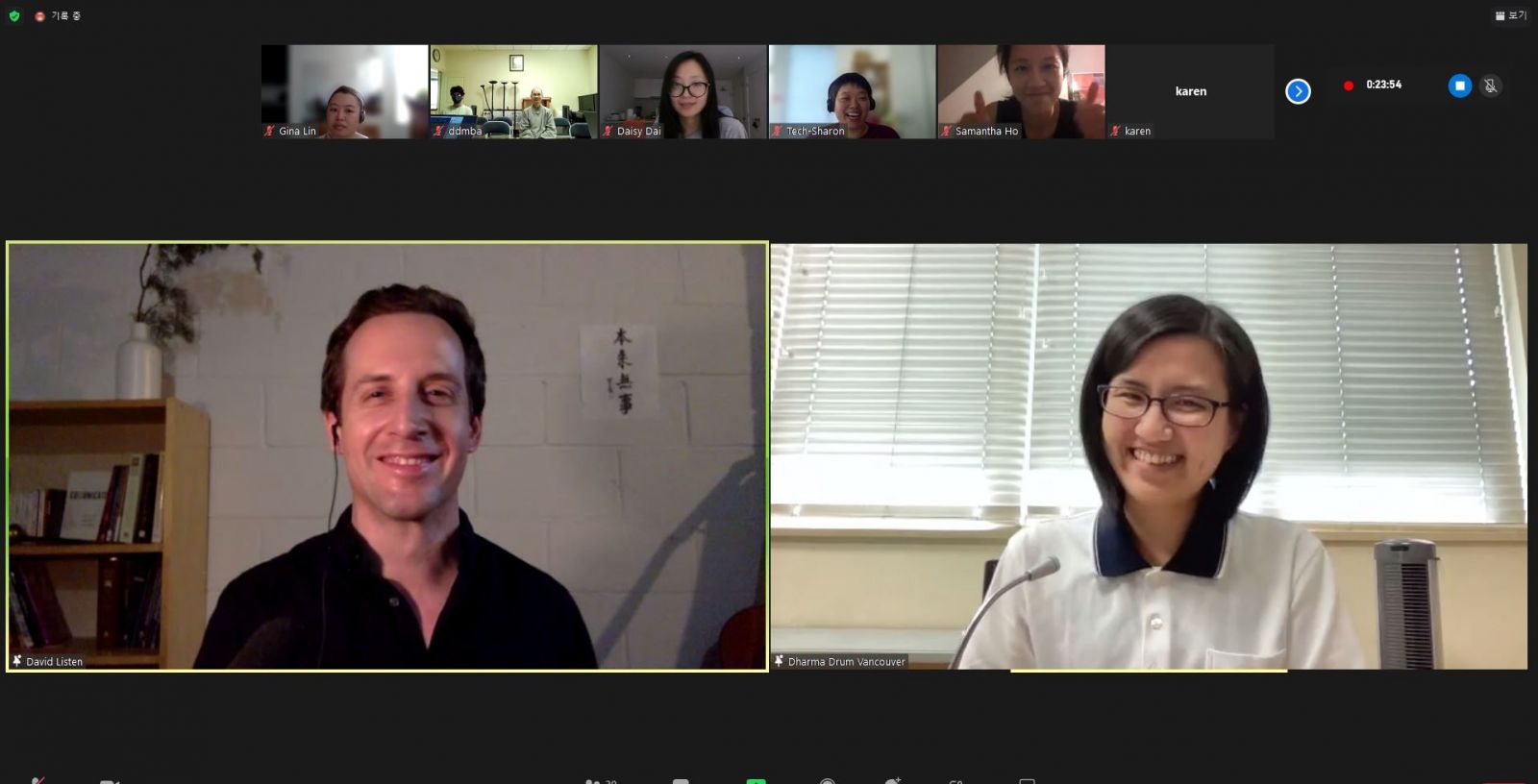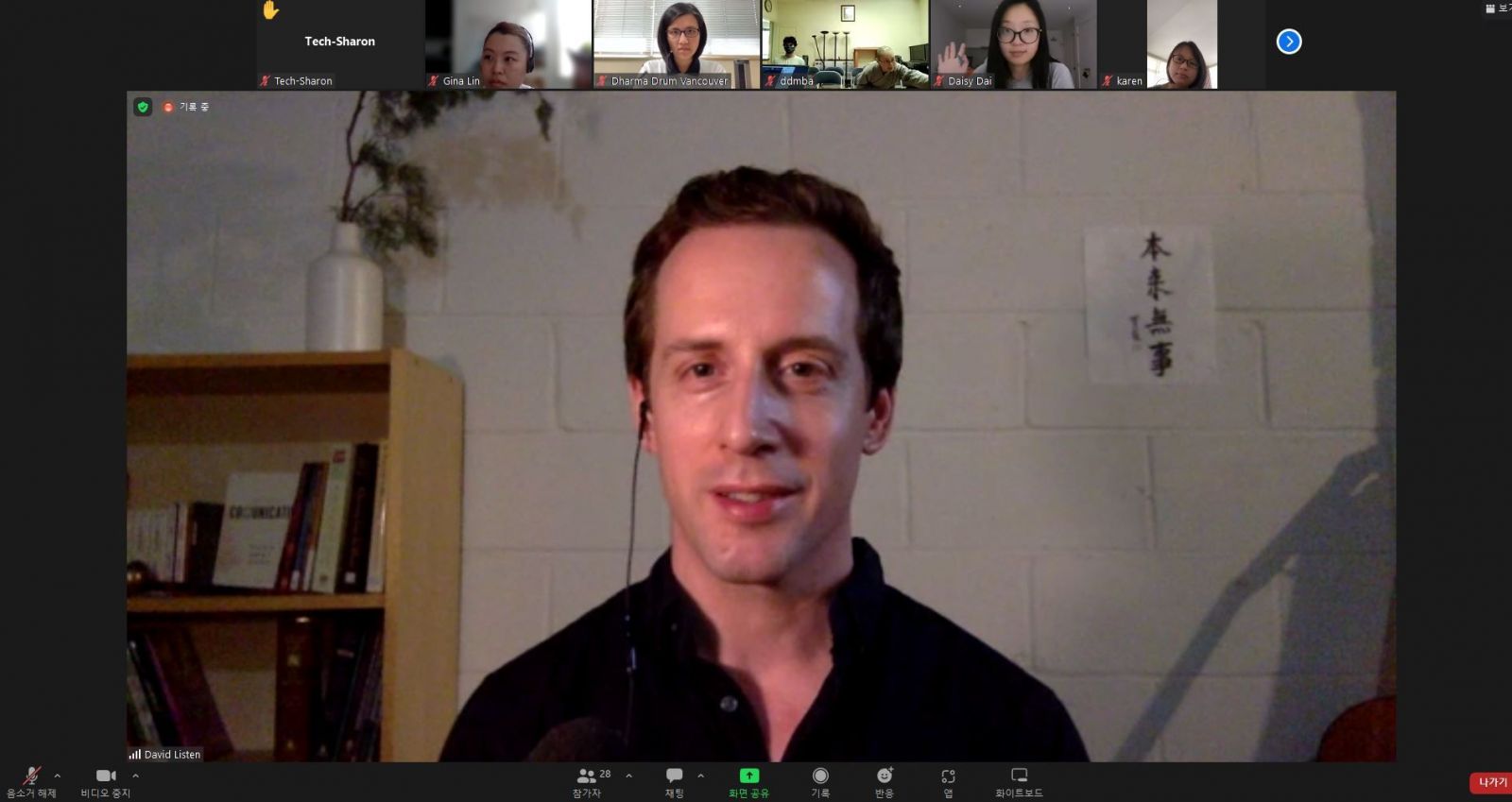DDM Global News
Mental Resilience—accessing the power of our minds
Updated August 6, 2022
Dharma Drum Vancouver Centre hosted an interactive dharma talk on July 30th, 2022, with the Centre’s guest speaker, David Listen, who is currently a life coach residing in New York, utilizing the teachings of Buddha to talk about developing mental resilience.
David started the talk by quoting the definition of mental resilience from the American Psychological Association. The set of coping strategies David provided is based on the three major trainings in Buddhism—precepts, stability, and wisdom (戒定慧)—and to have a community or social support. He explained briefly about the three trainings in Buddhism. Precepts refer to a healthy lifestyle and ethical guideline for living a balanced and harmonious life. Stability refers to different methods to stabilize our mind and body. Wisdom refers to achieving a realistic perspective about oneself and about the world. From a Buddhist perspective, the world is impermanent (無常) and interrelated (因緣和合). To have a community refers to being surrounded by people who understand us and care about our growth.
David shared his own experience how he overcame the fear regarding public speaking by shifting his mindset and changing his attitude when he was in the monastery in Taiwan.
After the brief introduction, the host of the talk from Dharma Drum for Young People (DDYP), Monica Ho, initiated the first question collected from the audience to see if there is a self-assessment for one’s resilience level. David responded, instead of assessing how resilient one is, he suggested focusing on assessing one’s mental clarity and physical condition. The malfunction of either one could put another one at risk.
 David also agreed with Monica that meditation can become a way to avoid problems if one develops a habit of avoidance with a wrong attitude. He further explained, meditation not only calms one’s mind but also helps one face oneself. Through practice, one can be fully aware of oneself and to be free from self-attachment.
David also agreed with Monica that meditation can become a way to avoid problems if one develops a habit of avoidance with a wrong attitude. He further explained, meditation not only calms one’s mind but also helps one face oneself. Through practice, one can be fully aware of oneself and to be free from self-attachment. Monica further asked how to face oneself courageously. David advised, through meditation, one can understand that self-attachment is merely an idea rather than one’s true-self. Through practice, we can become less attached to our self-image and become more resilient. Most young people are often trapped by the fear of failure. In David’s opinion, failure is just an idea and we can see it as an experience in life. We also need to understand that when conditions are right, things will eventually work out, and vice versa.
Also, meditation can help with unpleasant memories or experiences according to David. One can be more present and to be more at peace with painful memories, instead of suppressing or avoiding them. Regarding global issues such war, climate change and other human catastrophes, David explained that being a Buddhist does not mean facing the world passively. We should carefully choose our battles, which means to choose what we can engage in, depending on our roles and our resources. In addition, it is also important to more skillfully absorb and digest news we hear and read.
Monica finalized the questions from the audience by asking about the practice of self-care. David emphasized the importance of having a sustainable way of living. The three major trainings in Buddhism, which lead to a healthy life, mental stability, greater awareness about the world, and a supportive community, are keys to build mental resilience. Self-care needs to be done more skillfully rather than leading us to more craving. True selflessness (無我) is self-care yet caring for everyone during the process.
Before the end of the talk, David answered more questions from audience to further explain about how to care for others while still maintaining our boundaries and not to misuse our compassion or kindness.
Written by Gina Lin 2022.08.01
Photo:Dharma Drum Vancouver Centre 2022.08.01
